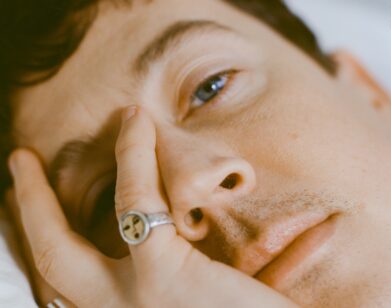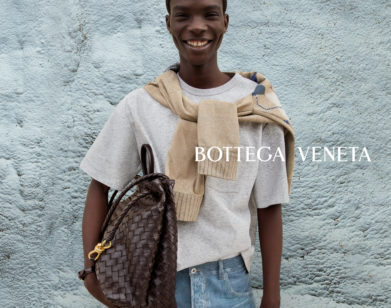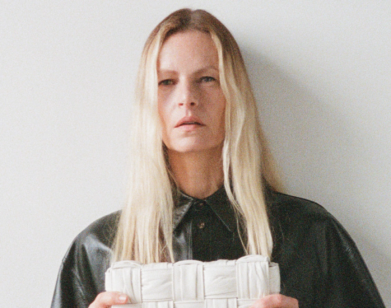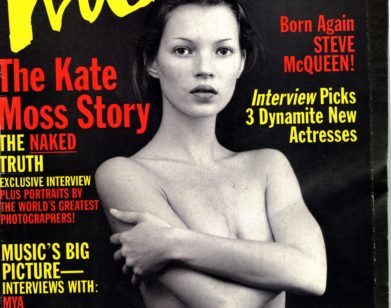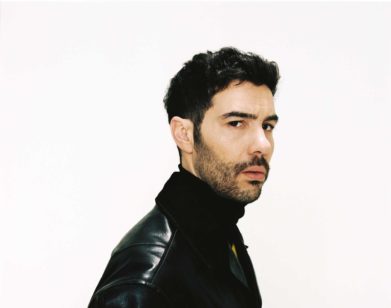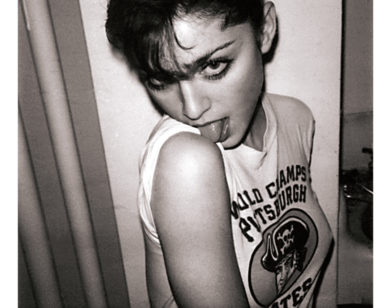50 shades of jamie
“We Still Feel Young, Right?”: Jamie Dornan and Carey Mulligan Look Back at 16 Years of Friendship
Jamie Dornan has been the source of many a dream. Men and women alike have fantasized about the hunky actor, most commonly recognized as the titular character in the BDSM blockbuster 50 Shades of Grey. Others might remember him as “the golden torso,” a nickname he swiftly earned during his run as a model, appearing in blood pressure-rising Calvin Klein ads alongside Kate Moss. But for as many eye-catching, dreamy, and in-control characters he’s played during his Hollywood career, it is his latest role in John Patrick Shanley’s romantic drama Wild Mountain Thyme, opposite Emily Blunt, Judi Dench, and Christopher Walken (and scored by Dornan’s wife, Amelia Warner), where the Irish actor is showing his ability to play “dorky and insecure”—which as he tells his friend and former co-star, the actor Carey Mulligan, feels a lot more like the off-screen Jamie Dornan. — ERNESTO MACIAS
———
CAREY MULLIGAN: Hi Jamie. How are you doing?
JAMIE DORNAN: I’m okay. You know. How are you doing? I miss you.
MULLIGAN: I’m glad, most of the time, to not be in London. I’m glad to be out of it a bit. But it has been extraordinarily weird. You’re not working or anything at the moment, are you?
DORNAN: No. I’m not. I did manage to work. I squeezed in a movie that we shot in Berkshire, of all places. Not a million miles from where you’re from, really. It was strange shooting in COVID times, but kind of weirdly not as strange as you’d imagine, and I actually just felt very grateful to be able to have done something.
MULLIGAN: What was it?
DORNAN: I did this movie with Kenneth Branagh, that he wrote and directed, and he’s in, as well. It’s called Belfast, and it’s about Belfast. A lot of people don’t know that Ken is from Belfast. I don’t want to give too much away. It was lovely, and I had the best time. Catriona Balfe plays my wife, and Dame Judi Dench played my mother, and Kieran Hines played my father.
MULLIGAN: Oh, my god.
DORNAN: It really was a collective of players, and I loved it.
MULLIGAN: That’s so great. Did you have to go into a big bubble with everyone?
DORNAN: We just went from accommodation to work every day. We tested every single day, and the whole crew got tested every day, and we got through it.
MULLIGAN: Oh, I miss working. It must have been so nice to act.
DORNAN: It felt like this little thrill to be able to do it. I started shooting this thing in March, and then the world turned upside down, and you realize that we’re so accustomed to it now. It’s just part of our lives on sets. It becomes so normal to us to be with this odd family for two to four months, or whatever it is, and see these different people every day. When that’s all taken away, you realize how much it’s a part of you, and how much you miss it. So I feel lucky that I got to do it.
MULLIGAN: That’s the bit that I miss. Just the camaraderie, and the little summer club feeling.
DORNAN: I’ve never heard that before. That’s exactly what it feels like.
MULLIGAN: I’ve been singing “Wild Mountain Thyme” all day.
DORNAN: I’m so sorry.
MULLIGAN: But it’s one of my favorite songs—
DORNAN: No.
MULLIGAN: I got really obsessed with Kate Rusby when I was in The Seagull, like a million years ago, and she does a really beautiful version of that, and I used to listen to it all the time. I watched the film last night and I was weeping. It was so moving right at the end. I just loved it so much. When you sing it with your dad when he’s on his deathbed, it skewers you. It was sweet.
DORNAN: Honestly, in that scene I couldn’t stop crying. I swear to god, I cried all day. Obviously, I do cry in it, but it just came so easy to me that day because Chris [Walken] was breaking my heart, take after take.
MULLIGAN: I knew that you had gone there, because your face looked really puffy, and in a fantastic way it was one of the rare times that you haven’t looked sensational on camera.
DORNAN: I was sincerely broken that day.
MULLIGAN: What was it like to work with Christopher Walken?
DORNAN: Well, you know, even to hear you say that, it’s absurd. He’s one of those actors that’s so obviously revered, and not only just revered for his work, and the body of work, and how long he’s been doing it, and how iconic his performances are, and the movies he’s been in, but he’s also such a character. Beyond the respect of how good he is as an actor, he’s just such a famous character and someone that everyone does an impression of. He has this aura, and actually, he is just the sweetest and most gentle, kind, beautiful man. I’m sure he won’t mind me saying this—he was so nervous about so much of it. Dearbhla Molloy, who’s a beautiful actor, plays Emily’s mum.
MULLIGAN: Oh, she’s so wonderful.
DORNAN: He said something to Dearbhla, and she turned around and went, “Chris, you’re Christopher fucking Walken.” He was like, “I know, I know. But I’m just…” He’s so meek and so sweet. A total treat. I loved him.
MULLIGAN: Did you know John Patrick Shanley? How did it come about that you ended up doing the part?
DORNAN: I did know of John Patrick Shanley. I’d remembered seeing Moonstruck a very, very long time ago, and I didn’t remember much about it, but I remember it being a hit, and I remember that Cher won an Academy Award. I was definitely aware of him. He’s one of those people that you can’t really imagine why he’d be aware of me, but he was.
When you get sent stuff, and you’re privileged enough to get offered things, I take it as a real compliment, but now and again you don’t want to do stuff. Then there’s stuff with a little extra note from your agent who said, “Put this up at the top of the list and read this first.” I read it, and similar to how I think people respond to the film, I was like, “What is this? This is the craziest thing I’ve ever read, but I am so in, and I am so moved by it.” So I spoke to Shanley on the phone about two days later.
MULLIGAN: Because he’s unlike anything I’ve seen you do before, certainly—he was such an oddball, clumsy character. Were you drawn to Anthony because he’s totally different from anything you’ve done?
DORNAN: Definitely. I would say Anthony’s not in control of everything, and that’s much more in my comfort zone. I’ve played a lot of characters who are all about control on TV and on film. Plenty of that. Actually, that is very much outside my comfort zone, because I’ve got a very childlike part of my adult being. So, in many ways, Anthony is an embodiment of all my awkwardness, shortcomings, and social anxiety. I just wanted to give him a hug the whole way through reading the script. I just want to put my arms around this guy and be like, “Dude, it’s okay. It’s okay to be like this.” I felt that it would be fun to embody someone who’s not so assured on their feet.
MULLIGAN: I do definitely sense that this is more of the spirit of Jamie that I know, beyond camera. We re-watched the Siege of Jadotville in lockdown in the summer, which is, by the way, so good. You are so good in it.
DORNAN: What did you watch that one for?
MULLIGAN: It was a lockdown Saturday night film for us. But it’s an entirely different character. Anthony was a bit more of you than anything I’ve seen you do. And I loved it because of that.
DORNAN: But that’s also the hardest thing to act, isn’t it? I’ve never in my life, Carey, felt so exposed. I got to the point where I convinced myself that I was carrying that secret around my whole life. I loved that. That doesn’t happen all the time. We do what we do, and quite oftentimes there is a disconnect between reality and make-believe. Sometimes it blurs and crosses over. I think I have a lot of Anthony in me. And I’m proud of it, too.
MULLIGAN: It makes you a lot more vulnerable when you can see the parallels between yourself and that person that you’re playing, as opposed to being a completely invented, fully thought-out, different person. That’s what’s so heartbreaking about that scene with your dad. Talk to me about Emily, because I love her so much. I think she’s so brilliant, and gorgeous and funny, and this is something totally different for her, as well. What was it like working with her?
DORNAN: I know for Emily, she was at a point in her career where she just wanted to do something really different. Emily’s a massive movie star, and she does really big studio movies where 120 million is a small budget. I think in the last couple of years she’s been doing a lot of that—I think, actually, to be honest with you, she was looking to do a play, and this is based on Shanley’s own play called Outside Mullingar. Her sister, Felicity, and Millie [Amelia Warner, Dornan’s wife] are best mates, so I kind of knew her a bit. We joke now because I’d met her a few times, and she doesn’t really remember ever meeting me. Do you think we’ll ever get to work together, Carey?
MULLIGAN: I’m sure we will. I think it’s just a matter of time. Don’t you think?
DORNAN: It seems weird. There are some friends of mine I feel like I maybe don’t ever want to work with.
MULLIGAN: I’m really a delight to work with. I know you are as well, so I think it would be fine. I think you only have to worry about that with people that you know are kind of dicks at work. I don’t think it would be a bad thing for our friendship at all.
DORNAN: Well.
MULLIGAN: And then you say, “Yeah, Carey, I know you’re lovely at work, too.”
DORNAN: I say this almost every time I’m interviewed: Hollywood is the smallest industry in the world, and you know people who are difficult, or tricky. Particularly men, I think. People are friends with others for that reason, like, “I don’t want to work with you, because I don’t want to wreck the idea I have of you as a friend.”
MULLIGAN: We’ve both been doing this long enough to know that it’s not worth doing it unless you’re doing it with people that make it fun. I just have a blanket rule now, if I hear that someone’s got a bad reputation for whatever—they can be the most creative, brilliant, genius in the universe—I don’t want to make that film, because I want to have a nice time, particularly when you’ve got to leave the kids. It just doesn’t feel worth it to put yourself through it.
DORNAN: Particularly since we’ve got five kids between us, I think.
MULLIGAN: That’s insane, Jamie. How has that happened?
DORNAN: I was actually trying to work out, just before this—we’ve known each other for 16 and half years, or something.
MULLIGAN: Because we met around Pride and Prejudice, and we filmed that 16 years ago.
DORNAN: My god. I love that I’ve known you that long, and literally since your first ever job. I think it’s so cool, but then it’s also like, “My god, that’s such a long time,” because we still feel young, right?
MULLIGAN: Oh, god, yeah. I still feel like I’m an ingenue, and I know for a fact that I’m not anymore. I’m so indoctrinated into believing that I’m an ingenue, because I was one for so long, and now I’m not. I only play mothers. It’s terrifying. When I was offered Wildlife, I had a 15-year-old in the film, and I said to Zoe Kazan, “Zo, I don’t know if I’m… I feel like I’m too young.” I was like 33, and she was like, “Yeah, you’re not.” And I was like, “Oh, no. You’re right. Fuck.”


